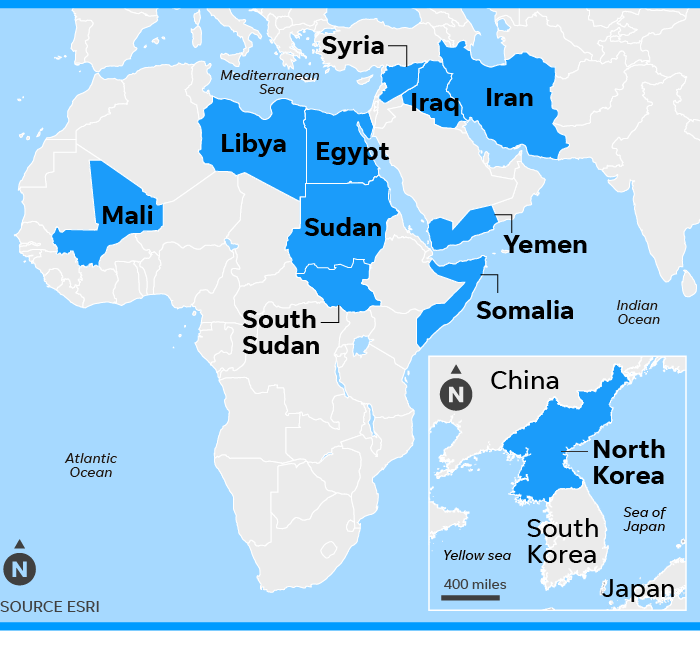begin quote from:
United States district courtJudge partially lifts Trump administration ban on refugees
A
federal judge in Seattle has partially lifted a Trump administration
ban on certain refugees after two advocacy groups argued the policy
prevented their clients — all individuals from predominately Muslim
countries — from reuniting with family living legally in the United
States.
U.S. District Judge James
Robart issued a preliminary injunction Saturday ordering the federal
government to restart processing the applications of refugees “with a
bona fide relationship to a person or entity within the United States.”
The
ruling comes after the ACLU of Washington and the group Jewish Family
Service filed a lawsuit arguing that President Trump’s order to tighten
refugee policy violates a federal statute created by Congress that
allows for people admitted as refugees to be able to resettle their
children and spouses in the U.S. as long as they satisfy the
government’s established vetting process.
“The
administration’s policy is ripping apart families and heartlessly
keeping refugees who have survived traumatic situations from reuniting
with loved ones,” said Enoka Herat, an attorney for ACLU of Washington,
after Robart’s ruling.
The injunction comes two
months after the Trump administration announced it was replacing a
120-day suspension of refugee admissions with a more restrictive
policy that would bar thousands of refugees from entering the United
States.
The newer program specifically bars
refugees coming from 11 countries that made up 44% of the 53,716
refugees admitted to the U.S. in the 2017 fiscal year that ended Sept.
30, according to a USA TODAY analysis of State Department data.
The
11 countries include Egypt, Iran, Iraq, Libya, Mali, North Korea,
Somalia, Sudan, South Sudan, Syria and Yemen. In all but two of the
countries on the list — North Korea and South Sudan — Islam is the
dominant religion. The new rules also meant an indefinite suspension on
the admission of refugees’ family members who had already legally
settled in the United States.
In
a statement, Department of Justice spokeswoman Lauren Ehrsam said: “We
disagree with the Court’s ruling and are currently evaluating the next
steps.”
The
plaintiffs in the federal suit filed in Western Washington include two
Iraqi men who served the U.S. military as interpreters in Iraq, a
transgender women who faces persecution in her home country of Egypt,
and a Somali national who has been in admitted to the U.S. as a refugee
but whose wife and child have been barred from entering.
The
day before Trump issued his executive order, Secretary of State Rex
Tillerson, Acting Homeland Security Secretary Elaine Duke and Director
of National Intelligence Daniel Coats sent a memo to Trump saying
certain refugees must be banned unless additional security measures are
implemented.
ADVERTISING
But
Robart noted in his order that former national security officials —
many of whom held “the most senior responsibility within the U.S.
government for overseeing the refugee resettlement process” —expressed
that they are “unaware of any national security threat that would
justify” the new restrictions.
“In fact, the
former officials detailed concretely how the Agency Memo will harm the
United States’ national security and foreign policy interests,” Robart
added. “Enjoining portions of the Agency Memo will simply restore refuge
procedures and programs to the position they were in prior to its
issuance, which already includes ‘the most thorough vetting of any
travelers to the United States.’”
Contributing: Associated Press


No comments:
Post a Comment